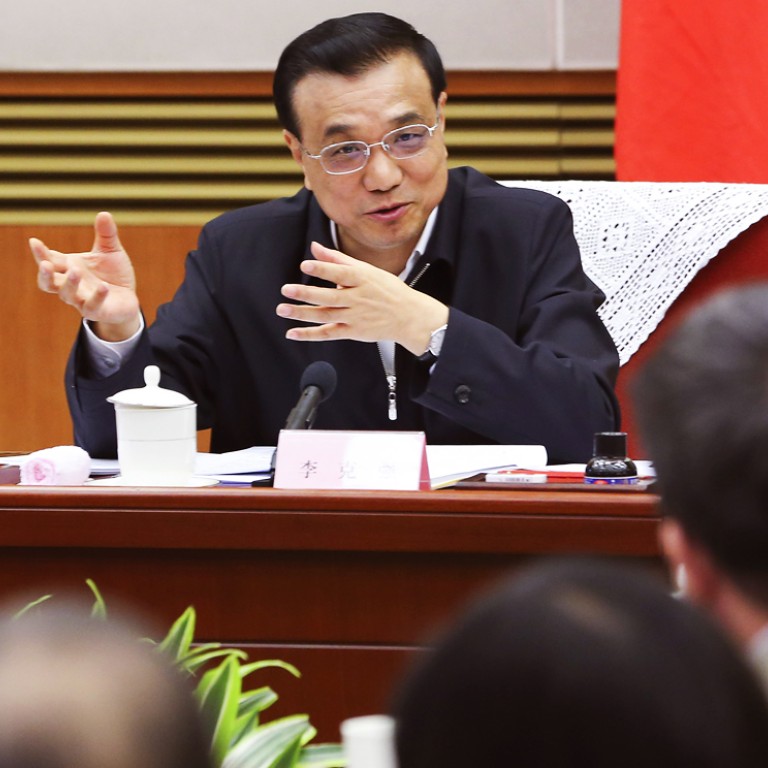
Chinese premier lashes out at foot-dragging officials over reform failures
Premier takes cadres to task for snaring reforms in reams of red tape
Premier Li Keqiang has lost patience with foot-dragging bureaucrats, lashing out at officials for holding up reforms amid an economic slowdown.
In an outburst made public late on Wednesday, Li used a State Council meeting earlier in the day to complain that a few ministerial section chiefs were stalling key decisions despite a consensus among ministers.
The comments underscored his frustration at the slow roll-out of his economic policies and came as the government decided to prioritise reforms to help revive the economy.
They also came on the same day as the release of the mainland's worst quarterly gross domestic product figures in six years, which showed that the economy grew at 7 per cent in the first quarter.
"If the central government takes more than a year of deliberation to come up with policies, and they then have to go through another year of red tape - is that some kind of joke?" Li was quoted as saying "sternly" in a statement posted on a government website.
"Some policies that have been discussed and approved by ministers at State Council executive meetings are still stuck [in the system]. Are we letting a few section heads be the gatekeepers of [our decisions]? Isn't that turning the government work process upside down?"
According to the statement, Li's outburst came after a departmental official said that some approved policies had still not been put into practice because they needed paperwork from various ministries.
"Isn't it a waste of time?" Li reportedly said, interrupting the official. "When you ministers attended meetings, no different opinions were flagged. Now you need your section heads to vet [decisions]?"
The bureaucracy is notorious for delays in implementing central government policy - so much so that there is a popular saying: "Policies and orders made in Zhongnanhai [the headquarters of the central government] do not go out of Zhongnanhai."
Li has repeatedly criticised officials for such inaction. At a State Council meeting last May, he described the foot-dragging as a form of corruption that stopped good policies from getting expected results. He also raised the issue of "slackness" by officials for the first time in his annual work report this year.
Zhu Lijia , a public policy professor at the Chinese Academy of Governance, said the failures to implement policies showed that there was still a way for the central government to go in its efforts to streamline administration and delegate power.
"It is common for lower levels of government to pass the buck on the State Council's policies, or block them with red tape … There is a funnel effect - the lower the level a policy goes, the weaker it becomes and the stronger the resistance it faces," Zhu said.
"Resistance is common at the lower levels, which do not understand or are dissatisfied with the State Council's policies, because streamlining administration and delegating power to the lower levels clashes with their interests."
He said the next step for administrative reform should be boosting efficiency at lower government levels, "because they are the most basic link to the development of the economy, people's livelihood and society".

